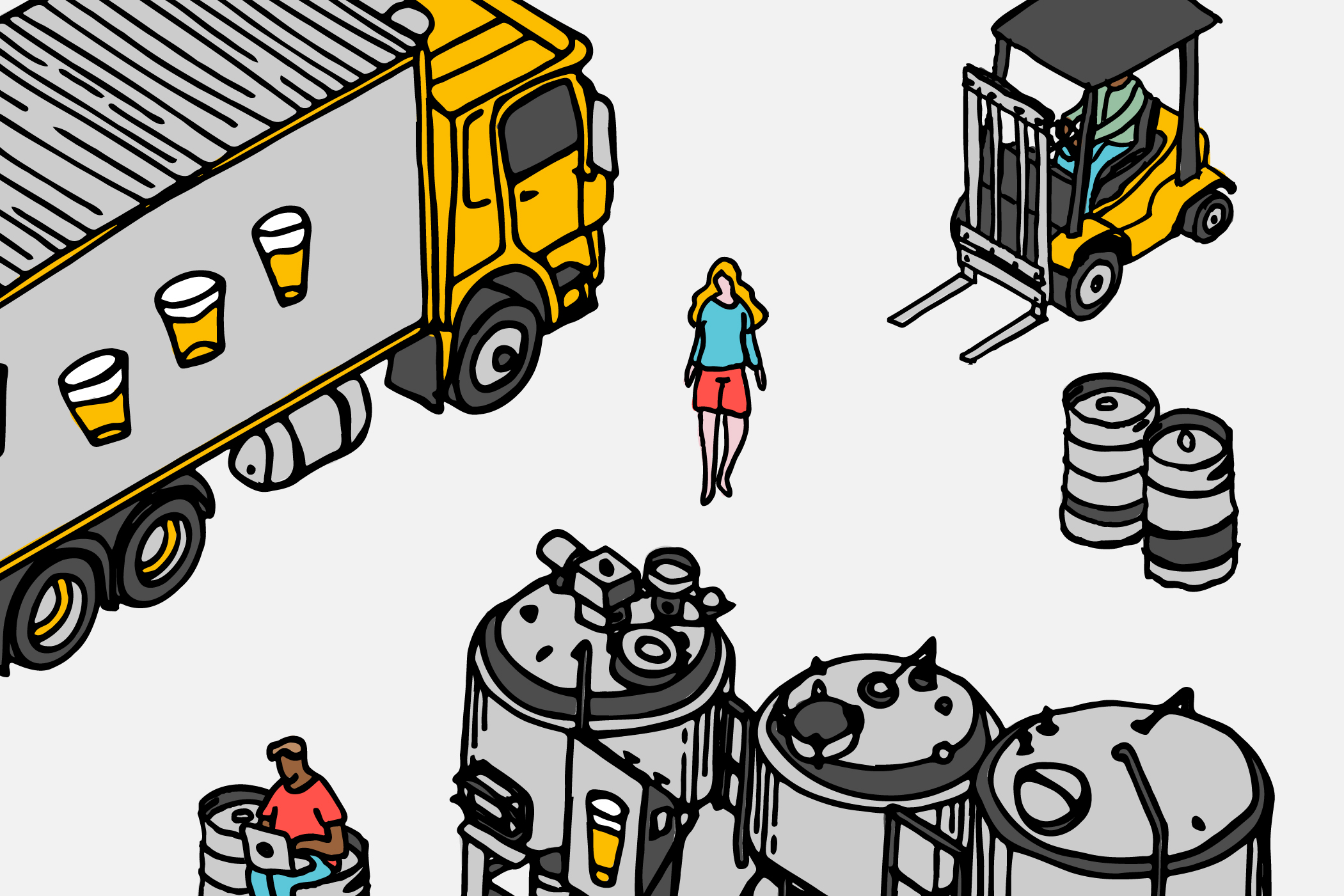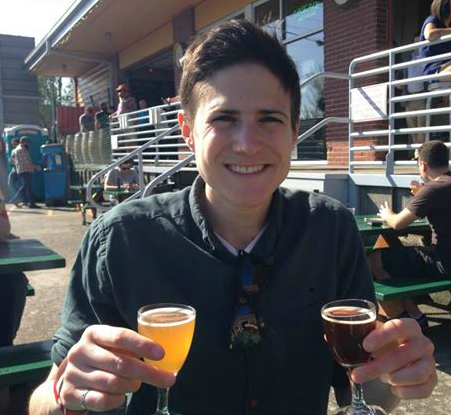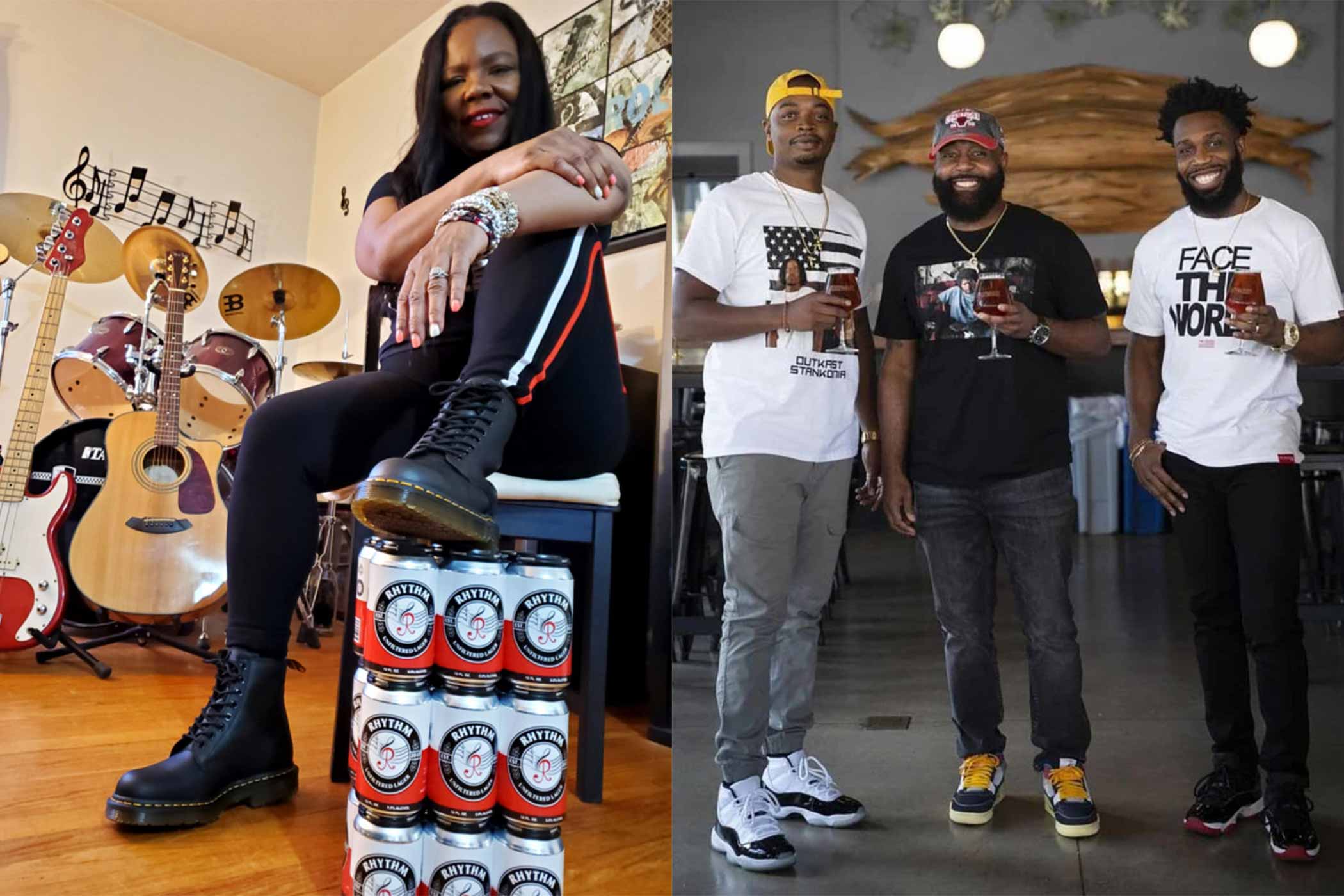Shop
Creating Safer Spaces in Craft Beer, Part Nine — It’s Okay to Make Mistakes, Just Don’t Tick Boxes
Part nine of ten.
“Creating Safer Spaces in Craft Beer” is an in-depth, ten-part series examining why it’s important to embrace diversity, equity, and inclusion in craft beer. Every Monday for the next ten weeks, we’ll be releasing a new part to the series.
[Creating Safer Spaces in Craft Beer, Part One — Why Isn’t Craft Beer More Diverse?]
[Creating Safer Spaces in Craft Beer, Part Two — What Does a Safe Space Look Like?]
[Creating Safer Spaces in Craft Beer, Part Three — Does Every Brewery Needs a Code of Conduct?]
[Creating Safer Spaces in Craft Beer, Part Four — Hire Intentionally and Train Your Team]
[Creating Safer Spaces in Craft Beer, Part Five — Start a Vocational Program]
[Creating Safer Spaces in Craft Beer, Part Six — Crafting Inclusive Events for Your Community]
[Creating Safer Spaces in Craft Beer, Part Seven — Brewing Beers That Make a Difference]
If you’re trying to create a safer, more equitable brewery, there isn’t a one-size-fits-all approach. You will make mistakes. And that’s okay.
“People are fearful they’re going to make mistakes,” says Courtney Simmons*, the former Director of Diversity, Equity, and Inclusion at New Belgium. “They put a lot of energy and effort into, ‘How do I not screw up? I’ll be careful and won’t say anything to offend anyone.’”
In reality, though, Simmons says that she consistently encourages employees to speak freely at New Belgium.
“Let’s suspend concern that we’ll f**k up and know that you will,” she says. “You will say something that hurts someone, you’re going to be unintentionally offensive and hurtful, but the priority is to commit to practice.”
“Creating Safer Spaces in Craft Beer” is an in-depth, ten-part series examining why it’s important to embrace diversity, equity, and inclusion in craft beer. Every Monday for the next ten weeks, we’ll be releasing a new part to the series.
[Creating Safer Spaces in Craft Beer, Part One — Why Isn’t Craft Beer More Diverse?]
[Creating Safer Spaces in Craft Beer, Part Two — What Does a Safe Space Look Like?]
[Creating Safer Spaces in Craft Beer, Part Three — Does Every Brewery Needs a Code of Conduct?]
[Creating Safer Spaces in Craft Beer, Part Four — Hire Intentionally and Train Your Team]
[Creating Safer Spaces in Craft Beer, Part Five — Start a Vocational Program]
[Creating Safer Spaces in Craft Beer, Part Six — Crafting Inclusive Events for Your Community]
[Creating Safer Spaces in Craft Beer, Part Seven — Brewing Beers That Make a Difference]
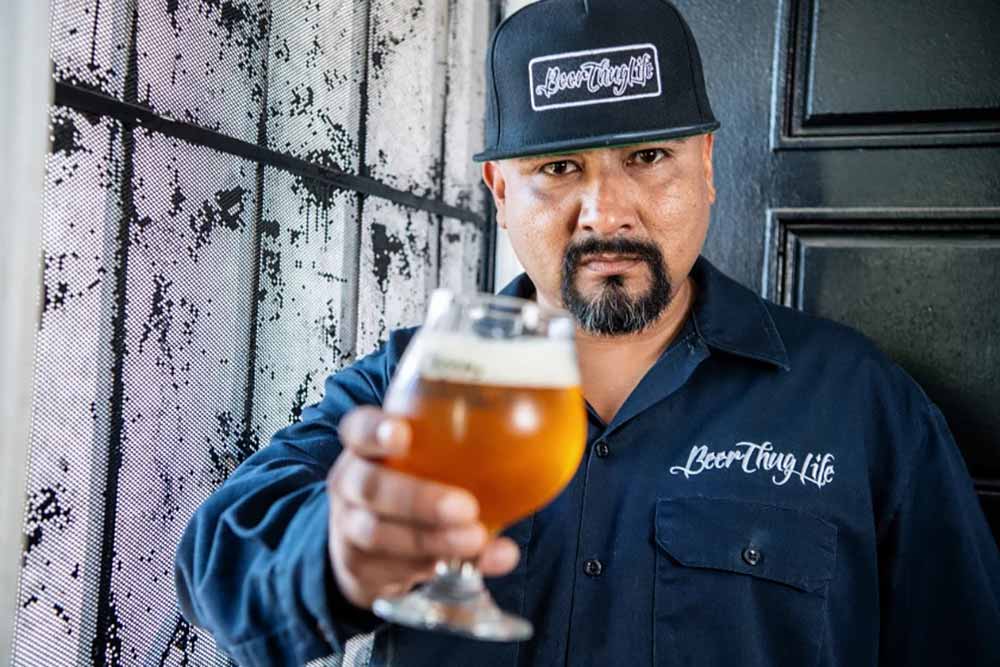
Edgar Preciado @beerthuglife | Photography courteys of Mariah Tauger | Los Angeles Times
In creating a safer space for more drinkers, the goal isn’t perfection–it’s practice. In fact, silence is the only real enemy to creating a more inclusive culture in craft beer.
Well, that and the pitfall of simply trying to check boxes.
*Editor’s Note: While putting together this piece, Simmons left New Belgium and is focusing on building her own DEI consultancy and continuing her advocacy work through Equality Michigan. New Belgium’s DEI team remains in place and continues the work described in this article, reporting directly to Chief ESG Officer Katie Wallace in the interim.
You Can’t Just Check Boxes for Diversity, Equity, and Inclusion
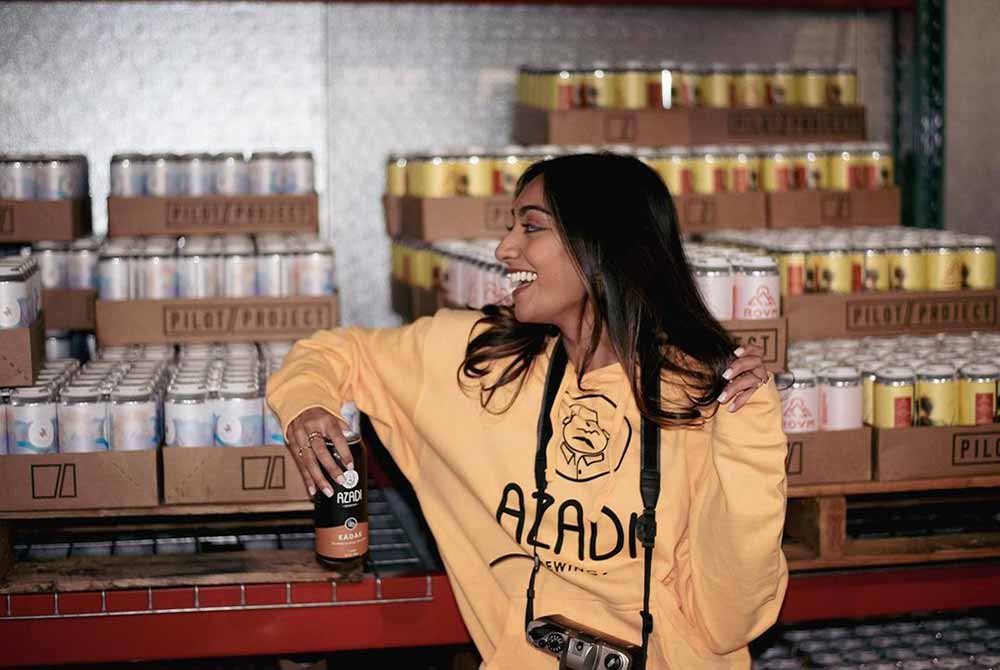
Photography courtesy of Azadi Brewing Company
Like beer, diversity, equity, and inclusion constantly evolves and changes. We can’t just ‘set it and forget it.’
“There is pressure just to give me the list of things I have to do, I’ll go do them, I’ll check the box, and it’ll be done,” says Simmons, who cautions that’s not the reality of this work. “Even if I gave you the list of what I did from day one to now, it is going to look different everywhere.”
This is exactly why Simmons says it’s important for any leader passionate about creating a safe space in their brewery to “be aligned around their why.”
“What is this about? What does it mean to me? And what learning do I have to do in order to do this well and be curious about others?” says Simmons. “When you don’t understand why you’re doing something, and you go through the motions, people will know that. It’s so important to be authentic in this work, and if you can’t do that because you don’t know, then it is important to find resources that can help.”
Some of those resources include New Belgium’s Poured for All, Crafted For All, Safe Bars, and HospitableMe, just to name a few.
“You don’t do that by saying, ‘Hey, you, person who has a different identity than me, identify all of this and tell me for free,’ but you can pay consultants to help you with that, or you can read a book,” says Simmons. “The question is what people are willing to invest in terms of other resources like time, commitment, and communication. All of those are investments too, but they cost less than dollars.”
Equity and Inclusion as a Journey–Not a Destination
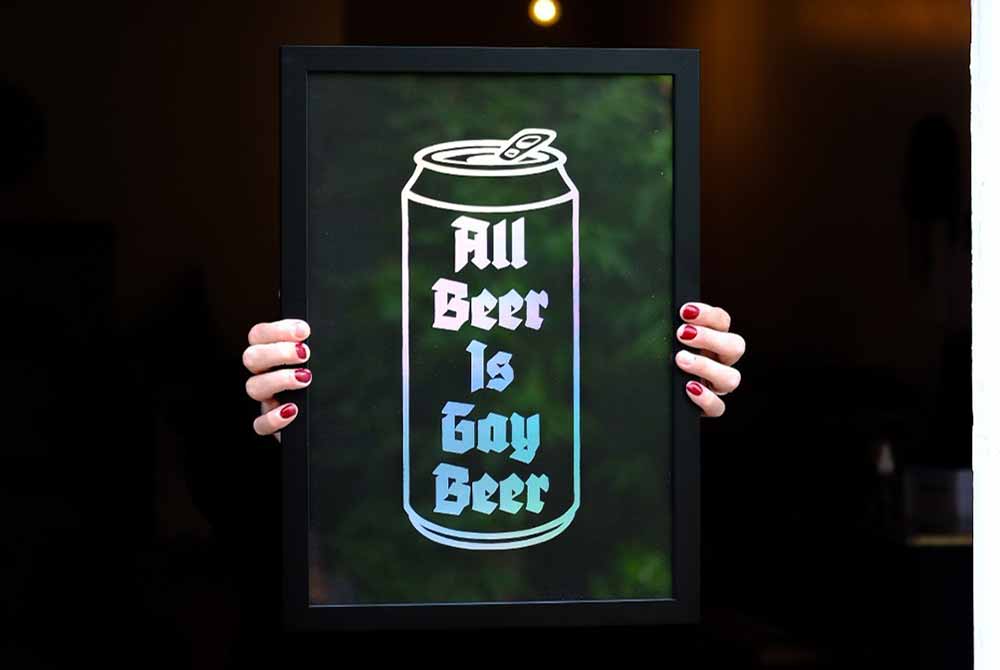
Photography courtesy of Queer Brewing
“Today is not like yesterday,” said Pangaea Bier Cafe and Urban Roots Brewing & Smokehouse Co-Owner Rob Archie in a diversity tap talk at the California Craft Beer Summit. “Every day you’re learning something new… every day you have to challenge yourself to have that growth mindset.”
Three Weavers Co-Founder Lynne Weaver echoed that sentiment.
“DEI is not the destination; it’s the journey,” she said. “If you live DEI, you understand that it’s not a road… it’s a lifestyle.”
To create impactful change, we must consider diversiry, equity, and inclusion 24/7 and 365 days a year. We can’t rely on one collaborative beer, event, or specific months such as Pride in June or Black History Month in February to raise and recognize underrepresented communities in craft beer.
For example, when we put together a piece on how a brewery could responsibly celebrate Juneteenth, we reached out to Craft x EDU Executive Director Dr. J. Jackson-Beckham and black-owned breweries like Funkytown Brewery in Chicago, which won the Samuel Adams Brewing the American Dream Business Experienceship this year.
One of Funkytown’s Co-Founders, Zachary Day, who recently won a scholarship from the Michael James Jackson Foundation (MJF) humbly reminded me that writing this piece is important, but, “From a consumer standpoint, don’t just take Juneteenth as one day… It’s even greater to have support 365 days instead of just one out of 365.”
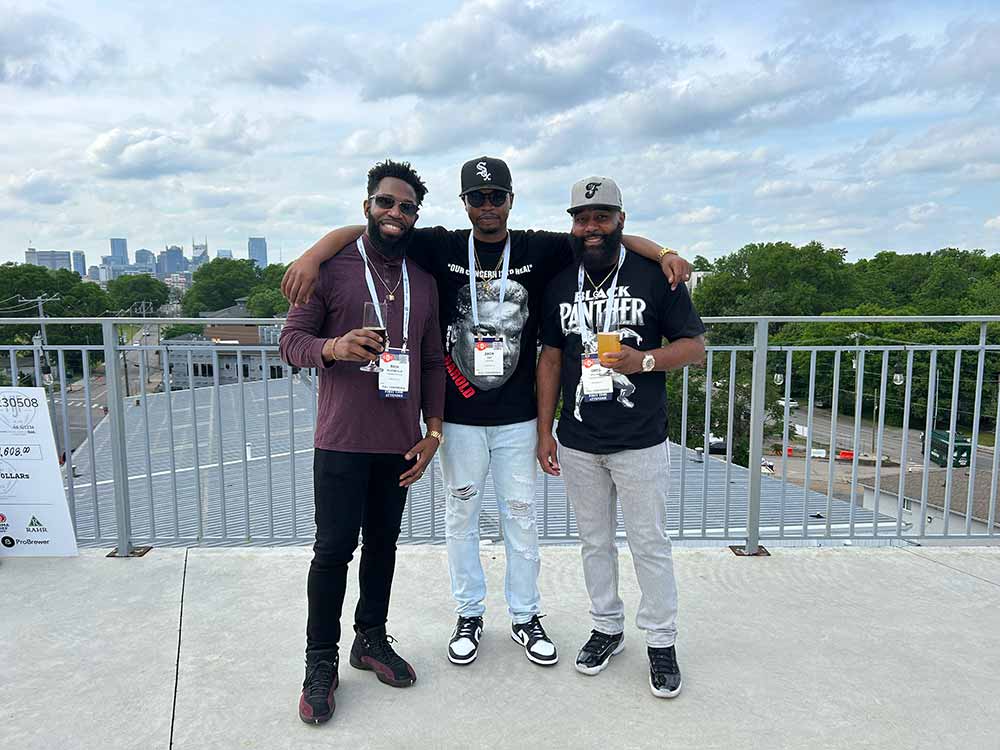
Funkytown Brewery Co-Founders (from left to right) Richard Williams, Zachary Day, and Gregory Williams | Photography courtesy Grace Weitz
Similarly, when Red Bear Brewing Co. owner Bryan Van Den Oever joined us for a panel on Authenticity in Queer Spaces in Craft Beer at our virtual Queer Beer festival in 2021, he asked this question: “Why do we only need to make Pride beer in June when we’re fighting for Queer representation and rights 365 days and 24/7?”
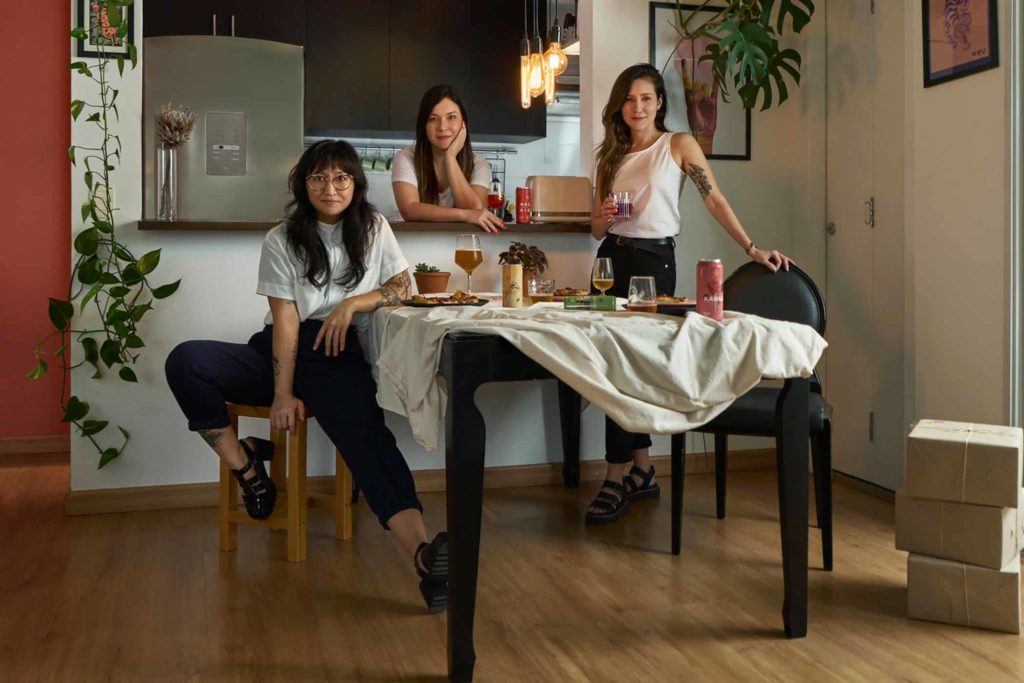
Photography courtesy of Bruno Fujii | Japas Cervejaria
The three female co-founders of Japas Cervejaria, a Brazilian-Japanese women-owned brewery from São Paulo, expressed similar sentiments during an interview. Apparently, people only call them up in March to do collabs because of International Women’s Day. Why not the other parts of the year?
“The worst is when people call us only to do collabs in March,” said Yumi Shimada, one of three founders of Japas Cervejaria.
“And then forget about us the rest of the year,” says Fernanda Ueno, another co-founder. “This happens a lot, and we get so pissed.”
“I don’t want to be used,” said Maira Kimura, the final co-founder. “We know a lot of things, we’re technical, we studied a lot, more than most men, but we’re always invited to talk about what it’s like to be a woman in the industry. C’mon, we’re brewers. Yumi is a world-renowned designer, so let’s talk about beer and business.”
The Struggle for Diveristy, Equity, and Inclusion Is Real… Every. Single. Day.
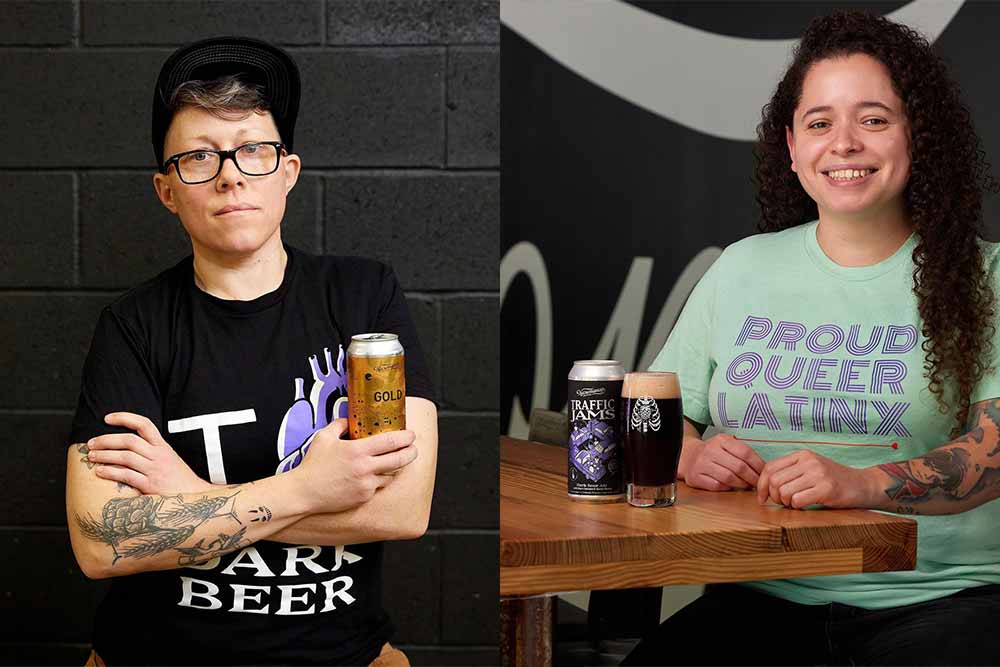
Necromancer Head Brewer Lauren Hughes and Assistant Brewer Nina Santiago | Photography courtesy of Necromancer Brewing
Since Necromancer’s Head Brewer Lauren Hughes and Lead Brewer Nina Santiago, experienced an incident of discrimination at a festival in May 2022 (read [Creating Safer Spaces in Craft Beer, Part Three — Does Every Brewery Needs a Code of Conduct?], they’ve been working with members of the Pittsburgh brewing community—including Jen Onofray at Two Frays; Kushner, Rado, and Kara Zupancic at Trace; Robert Dillman at Old Thunder Brewing; Rocco Ieraci at 412 Brewery; Katie Siffrinn at Dancing Gnome; Melissa Larrick and Malcolm Frazer at Hop Farm Brewery; and Caiti Sullivan at Coven Brewing—to push through a code of conduct at the Pittsburgh Brewers Guild.
A seemingly simple endeavor to prevent harassment and create safe spaces at future guild events has proved very challenging. The last year has been one of Hughes’ toughest.
“I won’t lie–this has been one of the hardest things I’ve ever done,” she says.
Pushing through a code of conduct seems like an easy proposition, but people have voiced opposition.
“It’s just getting everyone to understand why it’s important, but also get on board with why it’s important to want to create a safe space, to have a diverse taproom, a diverse staff, and keep things moving along,” says Hughes. “This is something that has huge meaning and value to ourselves as core beings, so having to push and then sometimes getting met with adversity continuously is very taxing,” says Hughes.
But Hughes and the committee preserved. In March, members of the guild voted and approved to engage on outside company called Mattingly Solutions to write a code of conduct. And the subcommittee worked tirelessly to raise the funding needed.
“I’m incredibly proud of everyone on the subcommittee,” says Hughes, noting a fundraiser they hosted in April sold out–and actually exceeded–their fundraising goal. “We’ve all been busting it to get things done, working really hard, so it’s nice to see that our work is getting somewhere, and we’re all pretty pumped.”
Even at Hop Culture, we’ve shifted our approach based on conversations we’ve had with folks in the industry.
While in the past, we’ve written stories with themes, “Here are the breweries from this group to support right now,” I’ve asked those from different communities how they thought we could improve that strategy.
Overwhelmingly, the response was to change the narrative. Instead of calling out a certain community in one story, just include a wealth of voices across all our pieces every single day
That way, representation becomes a natural part of your narrative.
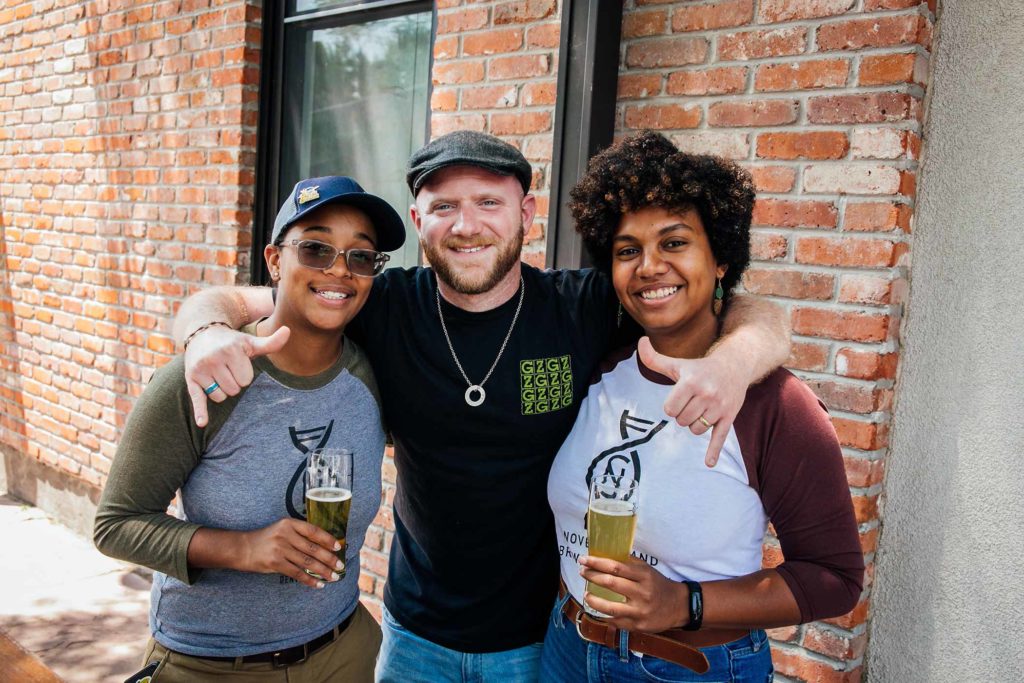
Photography courtesy of TruBlu Images
For example, when writing a piece on brewers’ favorite hops, ask a wide range of voices to contribute.
Or just showcase the real stories behind breweries like Fox Tale Fermentation, Elsewhere Brewing, Rupee Beer, Japas Cervejaria, Funkytown, Rhythm Brewing, Wah Gwaan Brewing Co., Mujeres Brew House, Prison Pals, and Novel Strand without making identity the sole focus.
“I’ve seen articles where the first thing they say is we’re a BIPOC-owned brewery,” says Novel Strand Co-Founder Ayana Coker. “But we are so much more than that.”
Is Coker a brown, Queer brewery owner? Yes. Is her business partner Chantel Columna a brewery owner with roots in the Dominican Republic? Again, yes. Is the third Novel Strand Co-Founder and Head Brewer Tamir Danon an Israeli, Jewish brewery owner? Yes.
But Novel Strand isn’t just a brewery owned by two BIPOC women and a Jew.
“The way I see it is the way I see myself,” says Coker. “Yes, I’m Brown. Yes, I’m Queer, but I offer so much more than just those titles.”
Coker says that, as people get to know her, those identities may come up in conversation, but it’s not the pivotal intro of, “Hey, my name is Ayana, I’m a Black, Queer person.” And that’s their approach at the brewery.
“Yes, we are a BIPOC-owned and -operated brewery, but first and foremost we are a brewery dedicated to crafting good beer and educating people on good beer,” Coker says.
By taking that approach, Novel Strand can allow for those deeper conversations to happen in their space.
“We never brought focus to any minority aspect of any of the three owners,” says Columna. “Everyone else said that.”
She hopes the narrative gets back to why Novel Strand started in the first place: coming into the neighborhood to create community.
“We want to go about it collectively in a way that makes sense for the community, not simply just putting a tag on it and because of that you should support me,” says Columna. “We actually care about making changes proactively in our way and that is authentic to us.”
We hope, everyone, including ourselves, will do the same.
Up next: Creating Safer Spaces in Craft Beer, Part Ten — Do The Work 24/7, 365 Days of the Year

